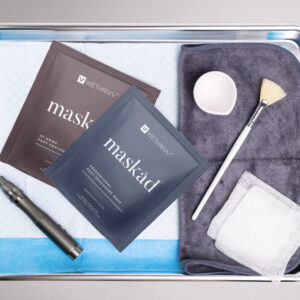
Face Mask Storage Tips
Keeping Your Skincare Products Fresh
Face masks are an essential part of any skincare routine, offering deep hydration, exfoliation, and targeted treatments for various skin concerns. To ensure you get the most out of your face masks, it’s crucial to store them properly. Proper storage not only maintains the efficacy of the ingredients but also extends the shelf life of your products. In this blog post, we’ll share essential face mask storage tips to keep your skincare products fresh and effective.
Why Proper Face Mask Storage Matters
Face masks, like all skincare products, contain active ingredients that can degrade over time if not stored correctly. Factors such as light, heat, and humidity can affect the potency and stability of these ingredients, rendering the product less effective. Proper storage helps preserve the integrity of your face masks, ensuring they deliver the best results for your skin.
General Face Mask Storage Guidelines
Regardless of the type of face mask you use, some general storage guidelines apply to all skincare products:
- Store in a Cool, Dry Place: Heat and humidity can cause active ingredients to break down more quickly. Store your face masks in a cool, dry place away from direct sunlight, such as a bathroom cabinet or drawer.
- Avoid Extreme Temperatures: Extreme temperatures, both hot and cold, can negatively impact skincare products. Avoid storing face masks near heaters, windows, or in the refrigerator unless specified by the product instructions.
- Keep Products Sealed: Always close the lids and caps tightly after use to prevent air and contaminants from entering the container. Exposure to air can oxidize ingredients and reduce their effectiveness.
- Use Clean Hands or Tools: When applying face masks, use clean hands or tools like a spatula or brush to prevent introducing bacteria into the product. This practice helps maintain the product’s hygiene and prevents contamination.
Storage Tips for Different Types of Face Masks
Face masks come in various forms, including sheet masks, clay masks, gel masks, and more. Each type may have specific storage needs to ensure optimal performance:
1. Sheet Masks
- Keep in the Original Packaging: Sheet masks are usually individually packaged. Keep them in their original packaging until you’re ready to use them. This packaging helps maintain the moisture and potency of the mask.
- Store Flat: Store sheet masks flat to prevent the serum from settling unevenly. If possible, keep them in a drawer or a dedicated skincare organizer.
2. Clay and Mud Masks
- Avoid Water Contamination: Clay and mud masks can dry out if they come into contact with water. Use a dry spatula to scoop out the product and avoid introducing water into the container.
- Seal Tightly: Ensure the lid is securely closed after each use to prevent the mask from drying out.
3. Gel and Cream Masks
- Store in a Cool Place: Gel and cream masks can be sensitive to heat. Store them in a cool place, away from direct sunlight and heat sources.
- Refrigeration: While not always necessary, some gel masks can benefit from refrigeration, providing a cooling and soothing effect during application. Check the product’s instructions before refrigerating.
4. Exfoliating Masks
- Avoid Humidity: Exfoliating masks often contain active ingredients like acids or enzymes. Store these masks in a dry environment to prevent the ingredients from degrading.
- Check Expiry Dates: Exfoliating masks can be more sensitive to environmental factors. Always check the expiration date and discard any products that have passed their prime.
Special Considerations for Natural and Organic Face Masks
Natural and organic face masks often contain fewer preservatives, making them more sensitive to environmental factors. Here are some additional tips for storing natural and organic face masks:
- Shorter Shelf Life: Be aware that natural and organic products may have a shorter shelf life than conventional products. Check the expiration date and use the products within the recommended timeframe.
- Refrigeration: Some natural masks, especially those with fresh ingredients, may require refrigeration to extend their shelf life. Always refer to the product’s packaging for specific storage instructions.
- Batch Numbers and Dates: Keep track of batch numbers and manufacturing dates, especially if you have multiple products from the same brand. This practice helps you use the oldest products first and avoid wastage.
Signs Your Face Mask May Have Expired
Even with proper storage, face masks can eventually expire. Here are some signs that your face mask may no longer be effective:
- Changes in Texture: If a clay mask has hardened or a gel mask has separated, it may be past its prime.
- Unpleasant Odor: An off or rancid smell can indicate that the product has gone bad.
- Color Changes: If the color of the mask has changed significantly, it may have oxidized or degraded.
- Irritation: If you experience irritation or an unusual reaction after using a face mask, discontinue use immediately. The product may have expired or become contaminated.
Conclusion
Proper storage of your face masks is essential for maintaining their effectiveness and extending their shelf life. By following these simple storage tips, you can ensure that your skincare products remain fresh and deliver the best results for your skin. Always read and follow the storage instructions provided by the manufacturer, and be mindful of expiration dates.





